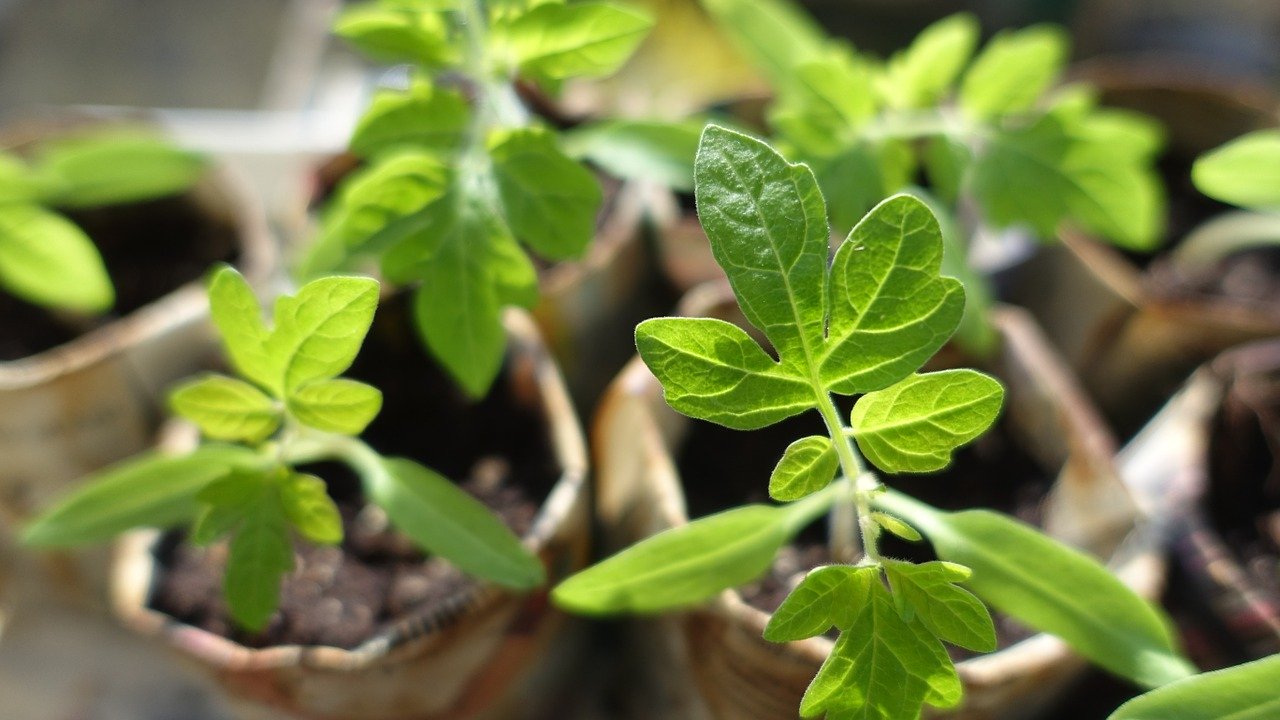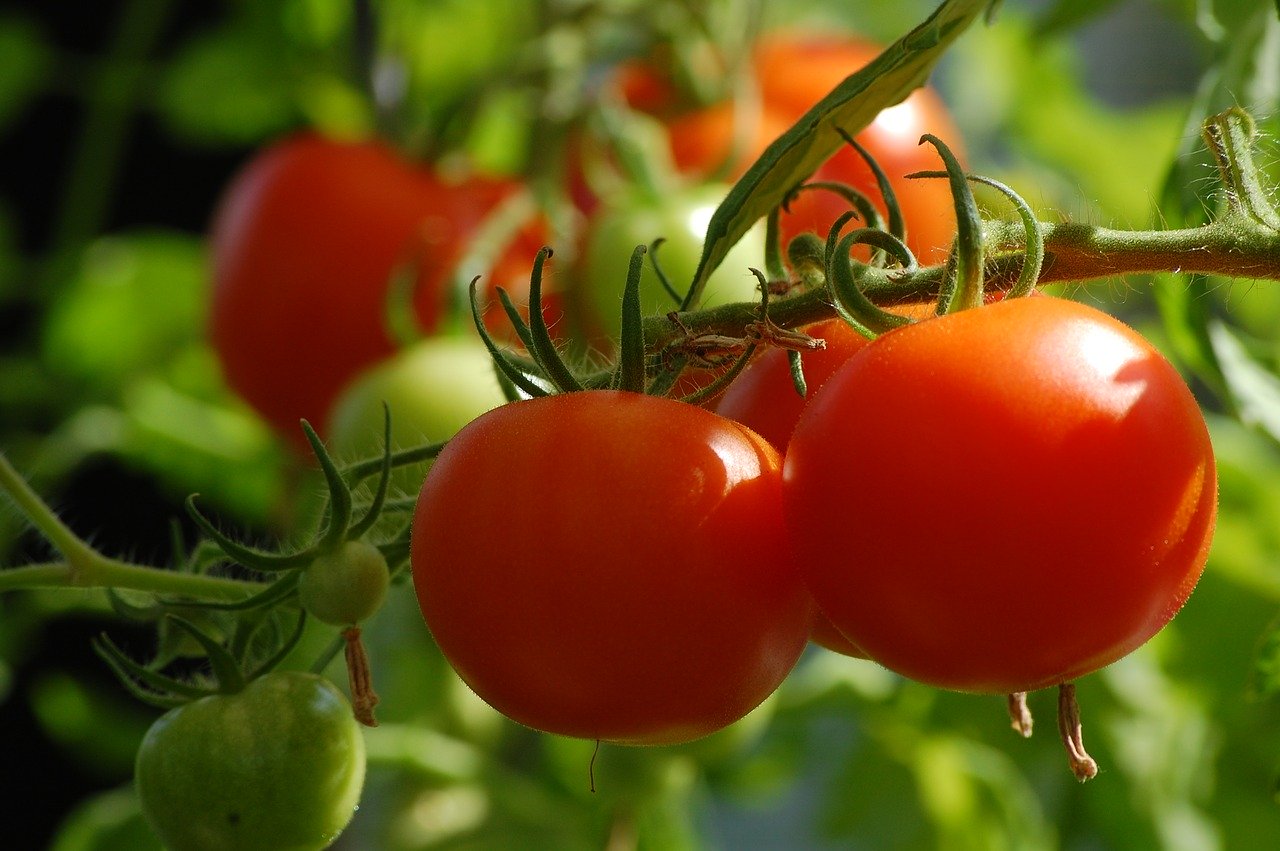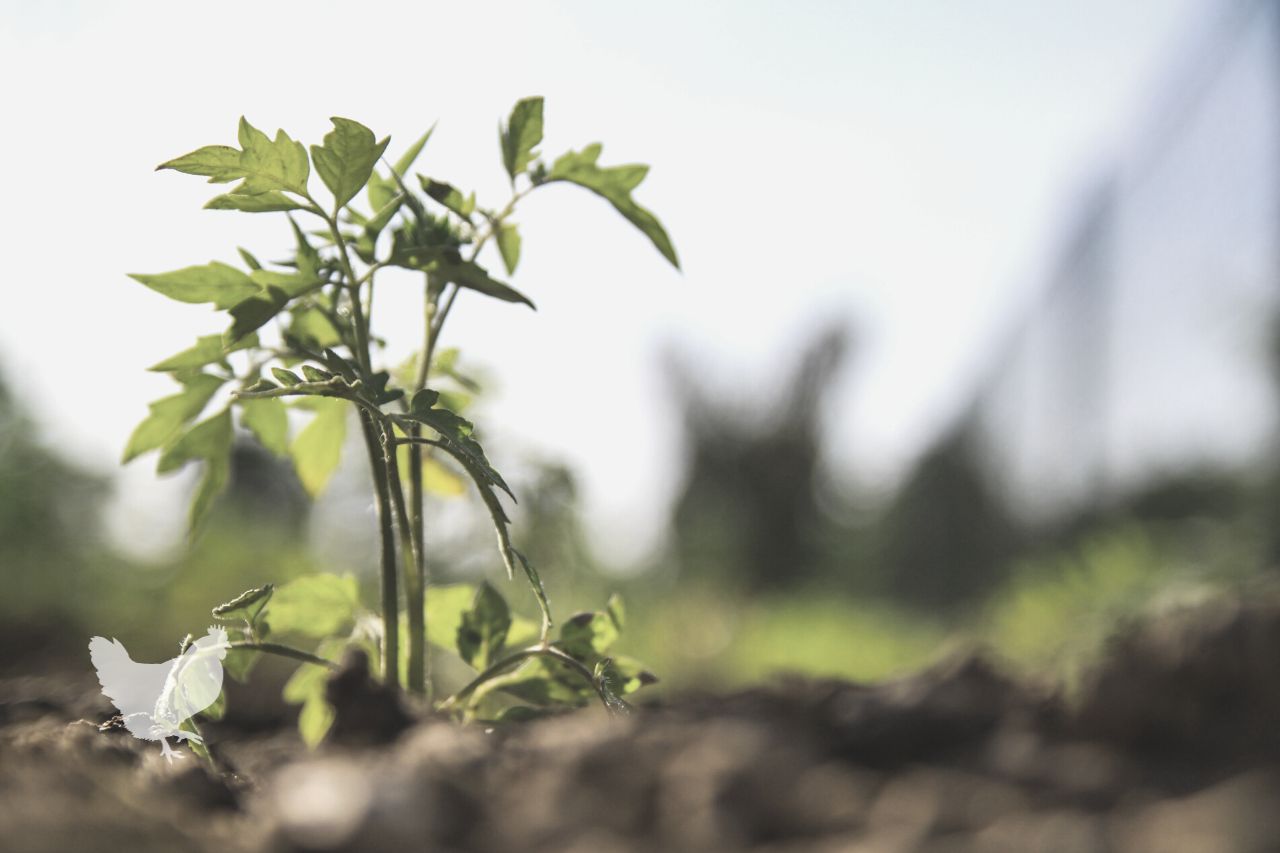Tomatoes are some of the easiest garden vegetables to grow, but you do need to provide them with the right amount of water, the right amount of sunshine, balanced soil and the correct fertilizer. In this article, we’ll discuss the types of fertilizer that work best with tomatoes. We’ll also provide good information on when and how often to fertilize tomato plants. Read on to learn more.
What You'll Learn Today
- Tomatoes Are Hungry Plants!
- What’s The Best Tomato Fertilizer?
- Is Chemical Fertilizer The Best For Tomatoes?
- Frequently Asked Questions
- How can you tell how much and which nutrients your tomato plants need?
- Is it good to use a low-or no-phosphorus fertilizer for tomato plants?
- Should you use fertilizers that contain weed killers on tomato plants?
- Is it good to use black plastic mulch on the soil surface surrounding tomato plants?
- What are some good soil amendments that can improve the quality and fertility of garden soil in your tomato patch?
- Can compost and other organic matter provide enough nutrients for a good tomato crop?
- Should you fertilize tomato plants at the time of planting?
- Do container tomatoes need more nutrient management than those planted in the ground?
- What’s the best type of fertilizer for tomatoes in containers, and how often should they be fed?
- Should you fertilize container tomatoes at the time of planting?
Tomatoes Are Hungry Plants!

Tomato plants produce lots of fruit, and this takes lots of energy. For this reason, they are heavy feeders and need lots of nutrition. It’s important that you neither under do nor overdo fertilizing your tomatoes.
Your first feeding should come before you even have any tomato plants in your garden. When you prepare the soil in your new garden bed, you should work in a good quality of organic tomato fertilizer according to packaging directions. Till it in to a depth of about one foot. This will give your tomato plants a great start.
How Often Should You Fertilize Tomato Plants?
When you plant your tomatoes, you can give them a little boost by mixing some fertilizer into the soil at the bottom of the planting hole.
Put a layer of fresh soil over this so that the roots don’t come directly in contact with fertilizer because fertilizer can burn tender roots.
When your plants begin producing fruit, you’ll want to provide another feeding. Thereafter, you should fertilize once every week or two throughout the growing season.
When you fertilize, take care to only fertilize the soil. Don’t get the fertilizer on the plants’ leaves or stems (unless it is a foliar fertilizer) as this may cause damage.
Be sure to water your plants thoroughly before applying fertilizer.
Read also: Why Are The Leaves On My Tomato Plants Turning Brown?
What’s The Best Tomato Fertilizer?
If you’re going to use a synthetic or chemical fertilizer, be sure to it inspect the ingredients carefully. Check to be sure that the levels of nitrogen, potassium and phosphorus are right for tomato growing.
Tomato plants don’t produce well with high nitrogen fertilizer because this type of fertilizer contributes to leaf growth but does not contribute to fruit production.
Phosphorus is essential for healthy root growth and good flower production. Feeding your tomato plants phosphorus strengthens them and increases their yield.
Potassium is necessary for rapid plant growth.
To determine the ratios of nitrogen, potassium and phosphorus in the fertilizer you are considering, look at the NPK rating on the front of the package. Generally speaking, a good tomato fertilizer will have an NPK rating of either 8 – 32 – 16 or 6 – 24 – 24.
The right NPK rating may vary depending on the quality of your soil. For example, if your soil has a high nitrogen level, you may need to choose a fertilizer that has a low nitrogen rating and a higher phosphorus rating. Examples include NPK ratings of 5 – 10 – 5 or 5 – 10 – 10.
On the other hand, if your garden soil is low in nitrogen you may want to use a balanced fertilizer. Examples include 10 – 10 – 10 or 8 – 8 – 8.
How Do You Choose The Right Tomato Fertilizer?
In order to correctly amend your soil and apply the right fertilizer, you need to understand the basic quality of your garden soil. It’s important to have the soil tested before adding anything to it.
Get in touch with your county extension agent to arrange for soil testing. Your county agent can counsel you on the correct fertilizers and/or amendments to help make your garden soil ideal for growing tomatoes.
If you’re not able to have your soil tested, you can usually guess right by going for a higher phosphorus level in a synthetic fertilizer.
If your garden has produced sickly tomatoes in previous seasons, you may wish to try simply amending with phosphorus.
Is Chemical Fertilizer The Best For Tomatoes?

Many gardeners prefer a natural, organic approach to fertilizing tomatoes. Using composted organic matter such as kitchen scraps, horse manure, lawn trimmings and the like saves money and makes good use of materials that would otherwise be thrown into the landfill.
Additionally, naturally fertilized tomatoes are usually tastier and better for your health than those fed with chemicals.
Here are some tips to help you fertilize your tomatoes naturally.
1. When you prepare your garden bed, instead of working chemical fertilizer into the soil, work in some compost and/or aged manure. Till it into the soil to a depth of about one foot.
2. As with chemical fertilizer, you should not place straight organic fertilizer too close to the plant. As organic matter decomposes, it can become very hot and may burn plant stems. It’s fine to have it worked into the soil, but if you side or top dress with fresh organic matter, take care not to allow it to touch tomato plants stems. Leave a space of about six inches all the way around the stem.
3. You can combine organic and synthetic fertilizers. For example, you could amend the soil initially with organic matter and then side dress or provide regular feedings using a good synthetic fertilizer occasionally or every week or two throughout the growing season.
4. Both organic and synthetic fertilizer need water to work correctly. Be sure to get your tomato plants on a regular watering schedule that keeps the soil slightly moist. This enables the plants to uptake the nutrients efficiently.
5. Water correctly. Unless you are using a foliar fertilizer, you should not get your tomato plant leaves wet. Instead, you should provide a slow trickle of water at ground level to thoroughly soak the soil weekly. Tomato plants need one or two inches of water per week, depending upon your climate and weather conditions.
Frequently Asked Questions

How can you tell how much and which nutrients your tomato plants need?
A: The first, and arguably most important step in correctly fertilizing your tomato plants is soil testing. This step will tell you exactly what nutrients your soil has and needs for vibrant tomato growth. Testing will also give you an accurate measure of your soils pH range. For tomato plants, you want a pH level of 5.5-7.
Is it good to use a low-or no-phosphorus fertilizer for tomato plants?
A: Sometimes this is a very good idea. Many soils already contain plenty oft phosphorus for good tomato production. Using excessive amounts of phosphorus can cause environmental issues.
Should you use fertilizers that contain weed killers on tomato plants?
A: No, this is actually a very bad idea for tomatoes and other food crops. Fertilizers with weed killers (“Weed and Feed”) may harm or kill your vegetable plants. Instead, use fertilizers without herbicides. Control weeds in the garden with a thick layer of mulch and old-fashioned weeding by hand.
Is it good to use black plastic mulch on the soil surface surrounding tomato plants?
A: Yes, black plastic mulch is a very good choice for a tomato patch. It keeps moisture in the soil, protects the plants’ roots and keeps the soil warm. It is also quite excellent at preventing weed growth.
What are some good soil amendments that can improve the quality and fertility of garden soil in your tomato patch?
A: Organic compost and/or composted manure can be incorporated into the soil at the beginning and the end of the growing season. Be sure not to use fresh manure because it may contain weed seed and harmful bacteria.
Can compost and other organic matter provide enough nutrients for a good tomato crop?
A: If you are able to incorporate very generous amounts of organic matter into your soil, you may not need to add fertilizer treatments.
Should you fertilize tomato plants at the time of planting?
A: It’s actually best to just amend your soil with compost and other organic matter before and during planting. Make your very first application of fertilizer when you see fruits beginning to develop. Spread a six inch wide band of fertilizer along the plant row, scratching it into the surface of the soil as you go. Water it in.
Do container tomatoes need more nutrient management than those planted in the ground?
A: Yes, container tomatoes typically need more nutrients because the potting media only provides a limited amount of fertilizer at the outset. For consistent, sustained plant growth, you must provide consistent, sustained supplementation.
What’s the best type of fertilizer for tomatoes in containers, and how often should they be fed?
A: Use a high quality, balanced time release, pelleted fertilizer. An NPK ratio of 20-20-20 is ideal. Read and follow packaging instructions carefully.
Should you fertilize container tomatoes at the time of planting?
No, the potting or container mix you use when potting your tomato plants should have enough nutrients to keep your plants fed for 2-4 weeks. When you pot your plants, give them a good watering and then keep a close eye on them. You should be able to provide the first deep watering and feeding a couple of weeks after potting.
If you have had poor luck with tomatoes in the past, you are sure to find that taking the time to have your soil properly evaluated and then amending it carefully will provide gratifying results!
I always go for organic fertilizers to avoid harmful chemicals or substances.